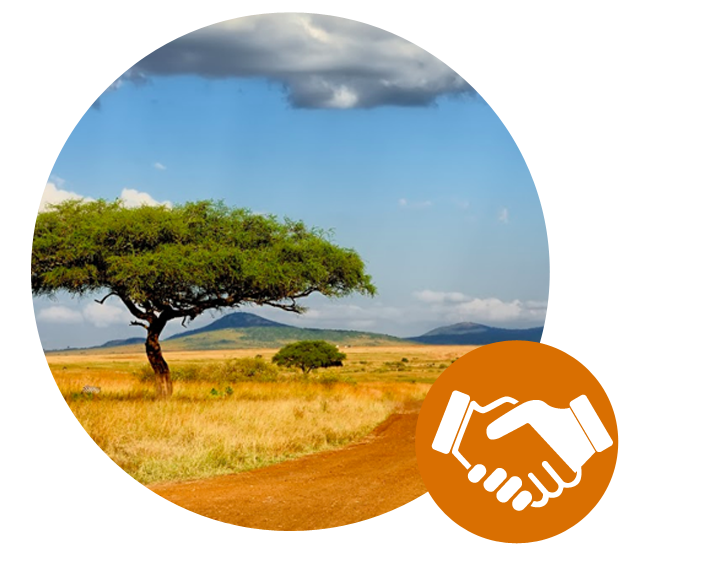
Challenges Expressed by GODAN Partners
Opening data isn’t always as simple as it sounds. Both large and small organisations can encounter challenges when opening data. Through stakeholder surveys and conversations with GODAN partners, we have put together a guide of some common open data challenges and solutions.
This can be of use to those who are planning to open their data, but also to those who both use and fund open data projects, to see what elements need to be taken into account in the process. We will start with General Challenges, then continue to challenges that have been explicitly identified in certain sectors, but are likely to have an application in other sectors too. Of course, GODAN is able to prepare and advise on proposals and submit joint proposals, where appropriate, with members and partners.
Financial cost
This challenge is multi-faceted and has several potential solutions. One that GODAN has been working on is ensuring that good data management and open data is a funded mandate, meaning that if a project is funded by a donor or foundation, they must first consider the costs of the project. GODAN can help advise on applications, assemble partner expertise and act as a facilitator. See more here.
Political buy-in
GODAN Partners often face a struggle to convince high-level actors (both government and private sector) to commit to open data.
GODAN has been working with many high-level actors and is gaining more traction in those areas. To advocate for open data to high level officials, we can offer several tools including the GODAN network, the Open Up Guide for Agriculture, and the Capacity Development Working Group
GODAN works with many high-level actors and can use its credibility and expertise to support initiatives that aim to make positive impact in the fields of agriculture and nutrition. We can network and convene, advocating for open data to high level officials. We can also offer invaluable tools including the expansive GODAN network, the Open Up Guide for Agriculture, and the Capacity Development Working Group.
Benefits to farmers
GODAN Partners want to make sure that open data benefits farmers, but struggle to ensure this happens. Whereas farmers who would benefit from access to this knowledge can sometimes struggle with access to the necessary technology to use the data effectively, data literacy and even access to the data itself.
By practicing responsible data principles, including data ethics and ensuring data rights, open data will benefit the person it is meant to, whether it be farmers, or any other vulnerable group. Maximum benefit can be achieved when best practices are adhered to throughout the data ecosystem. Continuously monitored interventions over a longer time period can also allow for flexibility and scalability, building stronger, more resilient communities.
Data standards
GODAN Partners want to better manage their data, but want a framework of best practices and data standards.
GODAN Action has published papers on Agri-Food Data Standards, and GODAN has hosted a Working Group to discuss aligning agriculture and nutrition vocabularies: “Publication and Alignment of Authoritative Vocabularies for Food Working Group”. Also, see the GODAN Tools and Resources for more information on standards.
Government Specific Challenges
Uneven distribution of datasets
Datasets for agriculture are generally distributed across different government bodies (for example: Chambers of commerce, statistical agencies, environmental agencies…)
Strong leadership and close collaboration is needed among these bodies in order to implement a successful data infrastructure. In addition, actors outside the agricultural domain may need to be convinced of the need to publish and maintain open data for the benefit of agriculture.
Limited infrastructure
The level of digital infrastructure is limited in many part of the world, especially rural areas, where the impact of agricultural open data and analysis would be most felt. At the end of 2015, only 10% of the world population had a fixed broadband internet connection.
In many areas, data sharing takes place via mobile devices, using Interactive Voice Response (IVR) and Short Message Services (SMS). Continuous improvement of the national ICT infrastructure will greatly enhance the potential impact of open data releases.
Limited data literacy
ICT, literacy and data skills may be limited among some of the intended user groups.
University Specific Challenges: Universities and researchers that work with open data also face significant challenges.
Strongly Voiced Concerns

Open Data as an Unfunded Mandate
Open data as a requirement is often seen as an unfunded mandate. There are costs to providing infrastructure, support, and long-term maintenance of research data. In some cases, with coordination of the library or other support, budgeting for the process of sharing and managing data properly can be built into the proposal. While funders do not prohibit budgeting for open data, some of the costs for uploading and maintaining open data occur outside of the project period.
Intellectual Property and Data Ownership Ambiguity
Open data and data management are often believed to be aligned with university Intellectual Property (IP), though data ownership is often not explicitly outlined in their policies. Universities have policies that define who owns products developed by faculty and often provide services to manage the IP of those products through technology transfer offices. IP guidelines define which products should be protected and when work can be shared. The current practice, although not explicitly written into policy, is that the faculty members decide how they can make use of the data. For some university faculties, the faculty’s work is owned by both the university and the faculty itself. The assumption is that faculty members can decide on the data’s use, unless dictated by contract. In some cases, a university might own the copyright to published work, but their policy may not explicitly say who owns unpublished data.
The adoption of open data policies would force transparency on the question of who owns the data. Though faculty are encouraged to license data to clarify intentions of how they want their data used through open Creative Commons licenses, some believe that data could be classified as facts, which cannot be licensed.
General Recommendations to Advance Open Data at Universities
- Effectively communicate the benefits of open access and open data.
- Create alignment between funders’ expectations and universities’ capabilities.
- Improve faculty’s ability to comply with open access and open data requirements.
- Refine and/or develop open access, and open data standards and protocols.
- Create sufficient infrastructure to handle data planning and management.
Donor and Grantee Specific Challenges
Grantees of agricultural funding face challenges complying with donors’ open access or open data policies, which leads to donors being unable to show the benefits of good data management and open data practices.

Challenges include:
- Data quality, data management, strategy (e.g. creating data management plans), putting data to use, and understanding responsible data use, especially among local research partners within low-income countries;
- The pressure to publish, lack of proper budgeting, and institutional policies are discouraging implementing research partners from releasing underlying datasets in a timely way;
- Attempts to foster a culture of openness are impeded by fears among researchers of a loss of benefit and uncertainty around use;
- Among some donors, there is a lack of oversight to routinely monitor how data is being used and to evaluate impact;
- Unclear directives on where open data should be published, and low awareness around how it can be accessed, are creating barriers for data producers and limiting potential use.

To help overcome these challenges, donors could:
- Resource capacity-building activities to support implementing researchers and programme managers, including opportunities for peer learning exchange among implementing research partners and between donor organisations;
- Incentivise researchers to publish by rewarding good quality data production, promoting the value of research data, embedding data publication as a deliverable of the programme – including within long-term budgets;
- Foster a change in culture through insisting on openness and collaboration, rewarding open behaviour, and delivering messages from the highest level of leadership;
- Designate responsibility for monitoring policy implementation, the quality of data production, and process improvement within the donor organisation;
- Explore shared tools for making data publication by implementing research partners easier, and factor in considerations around platform selection and awareness raising within data management plans.
